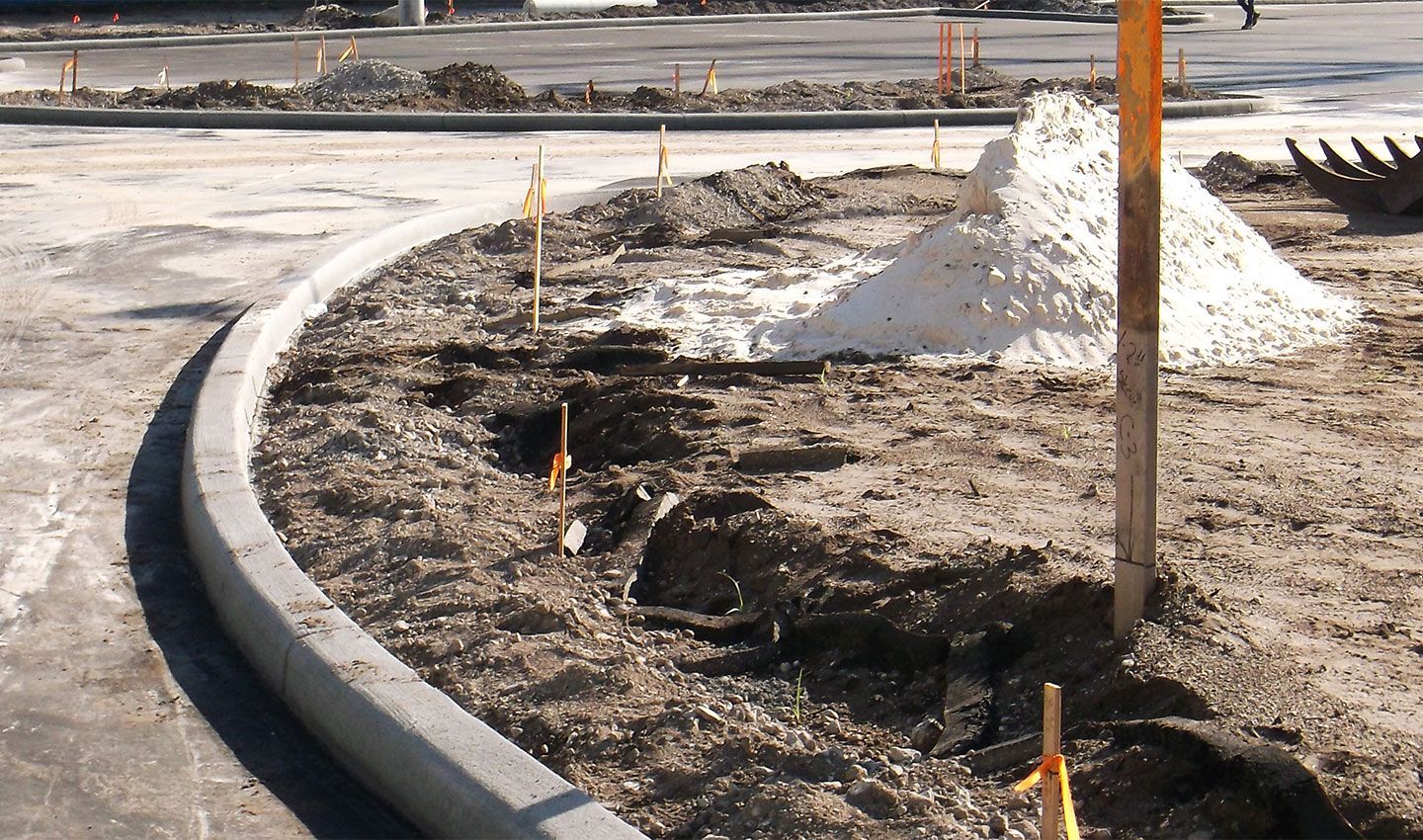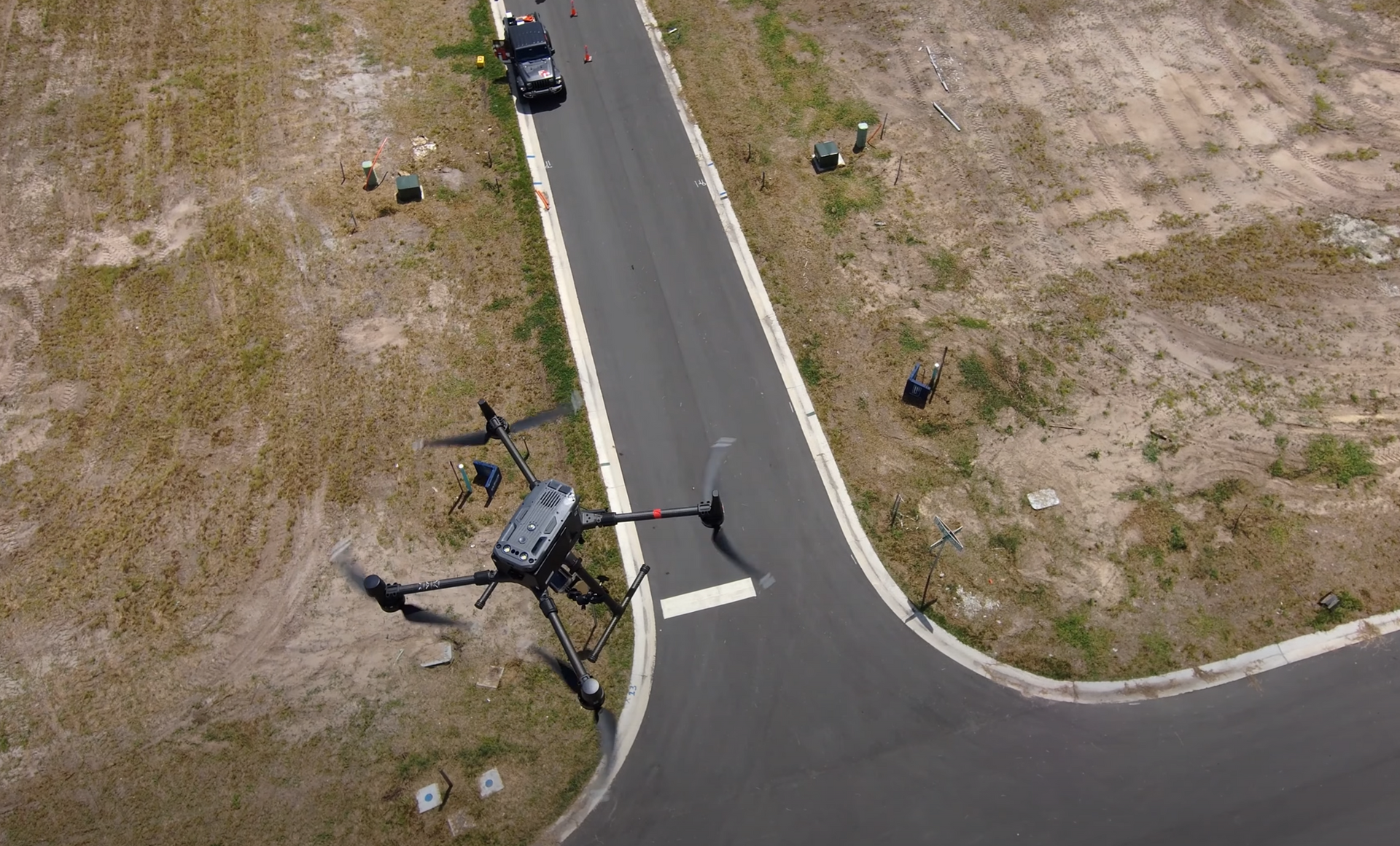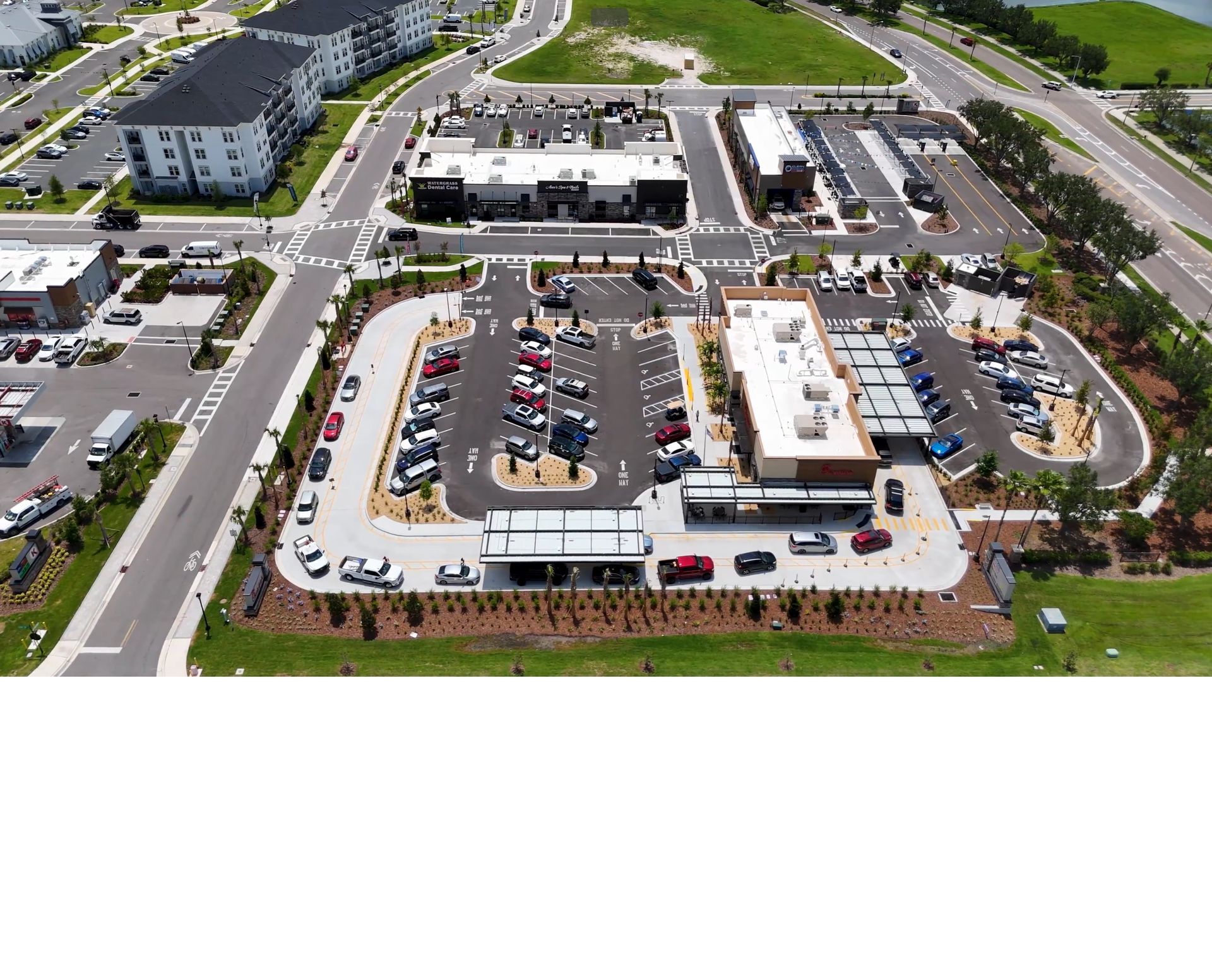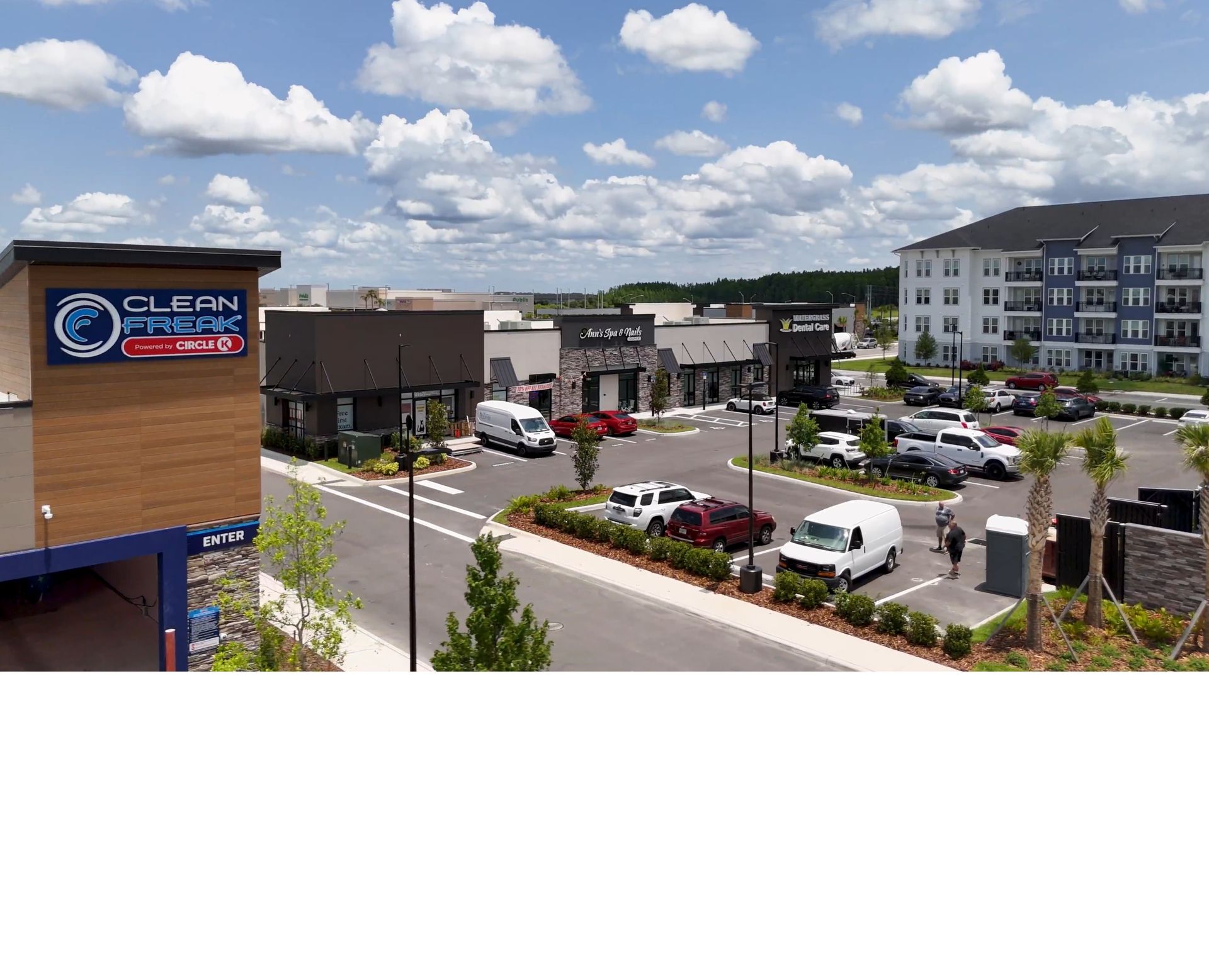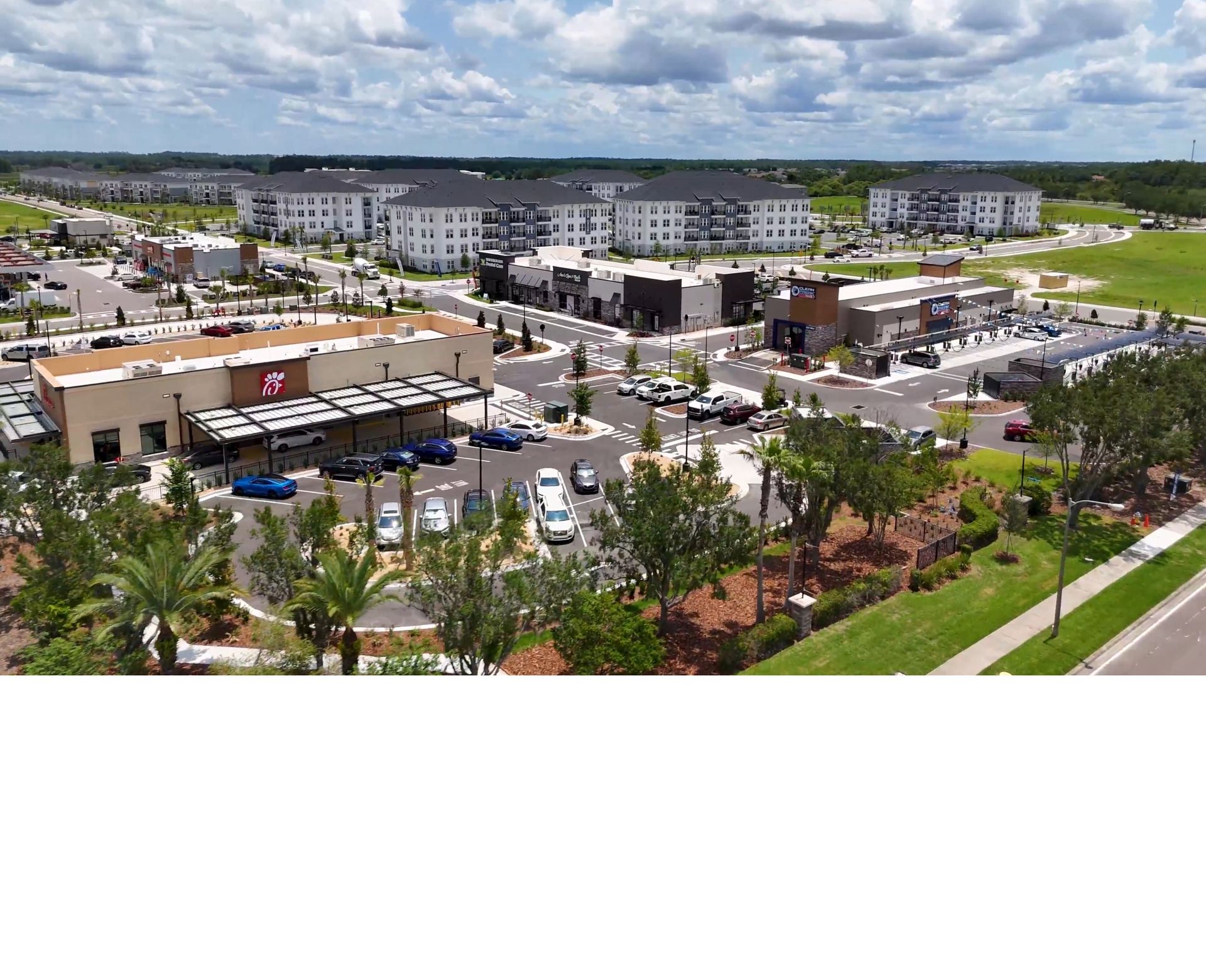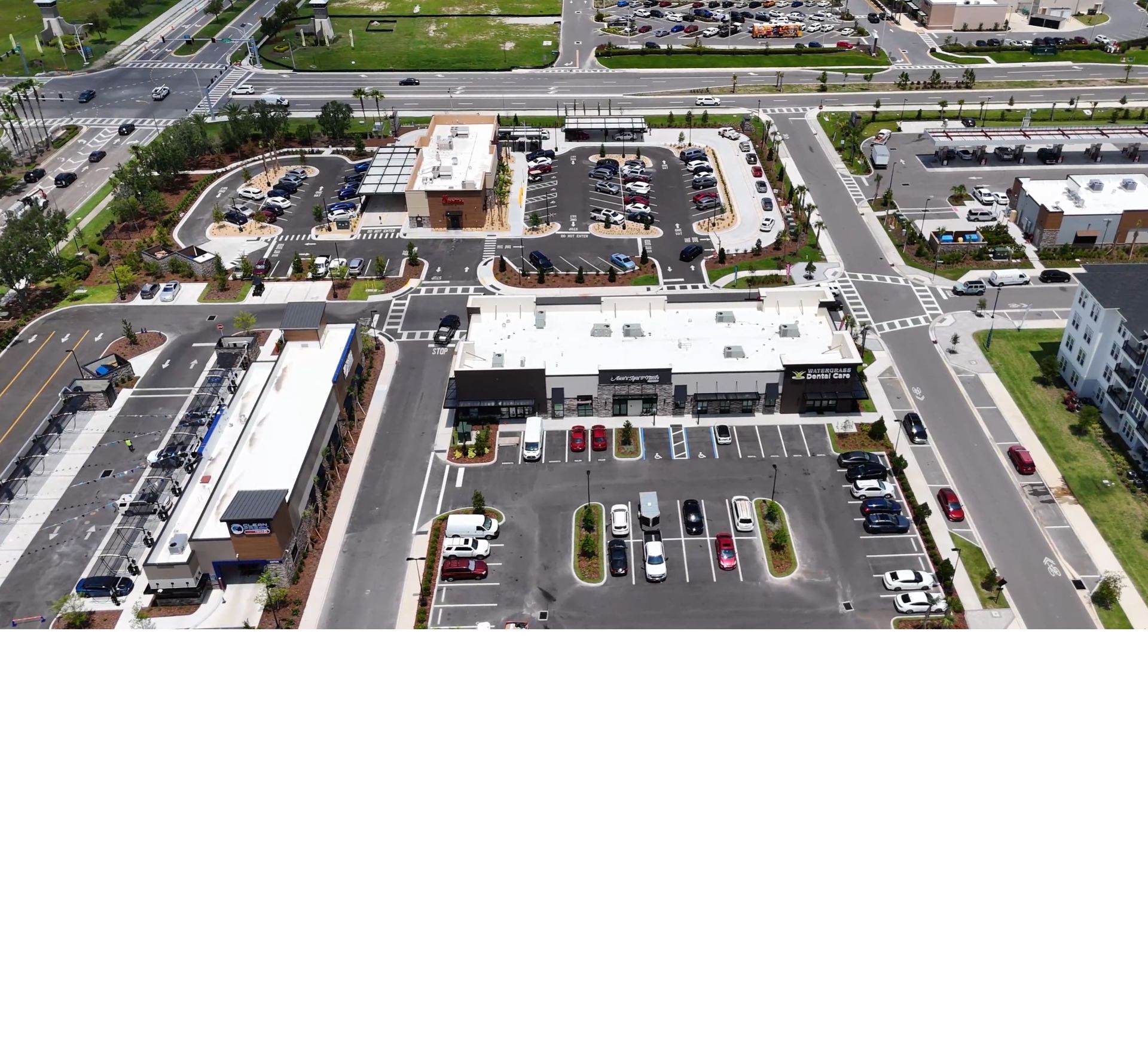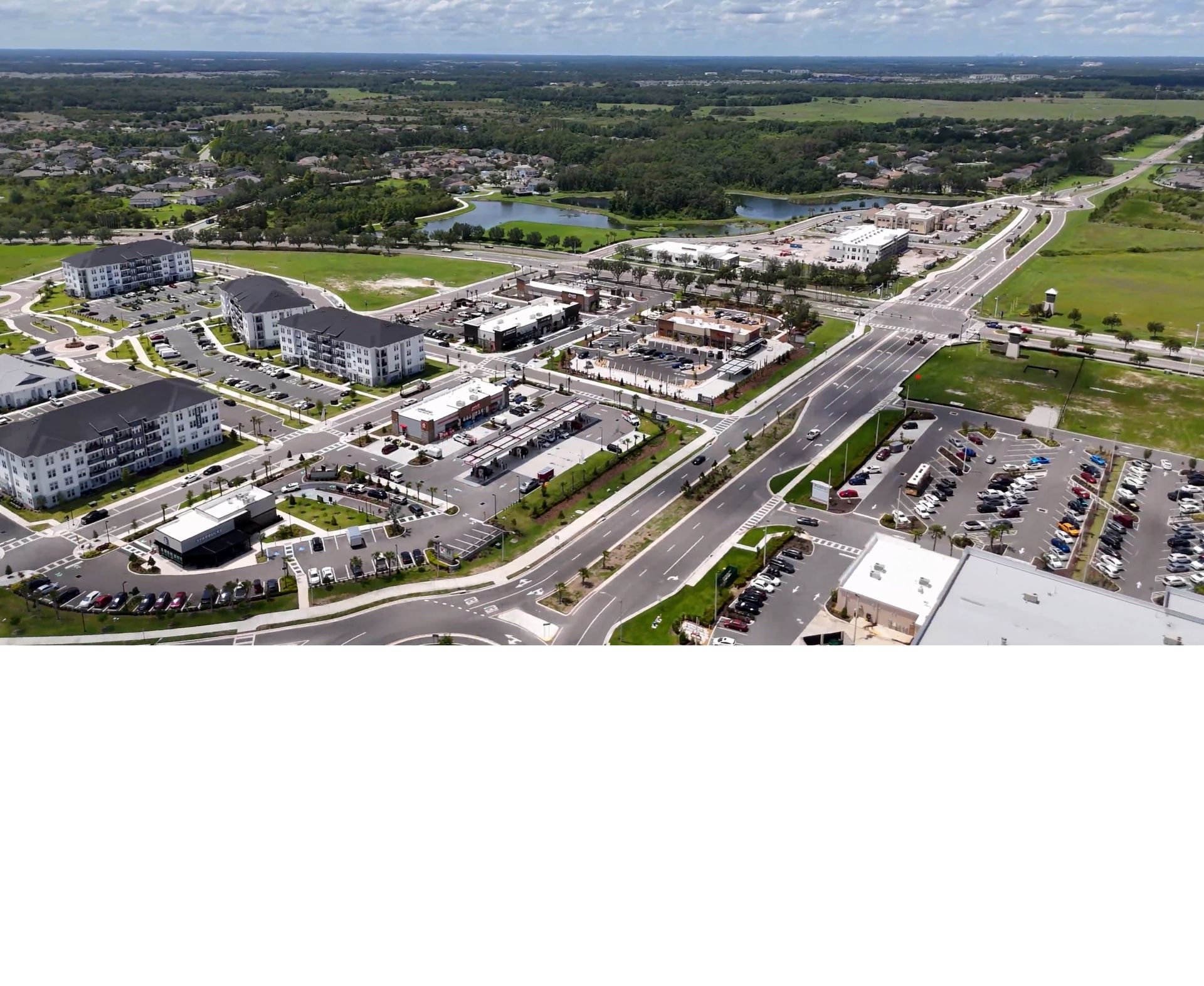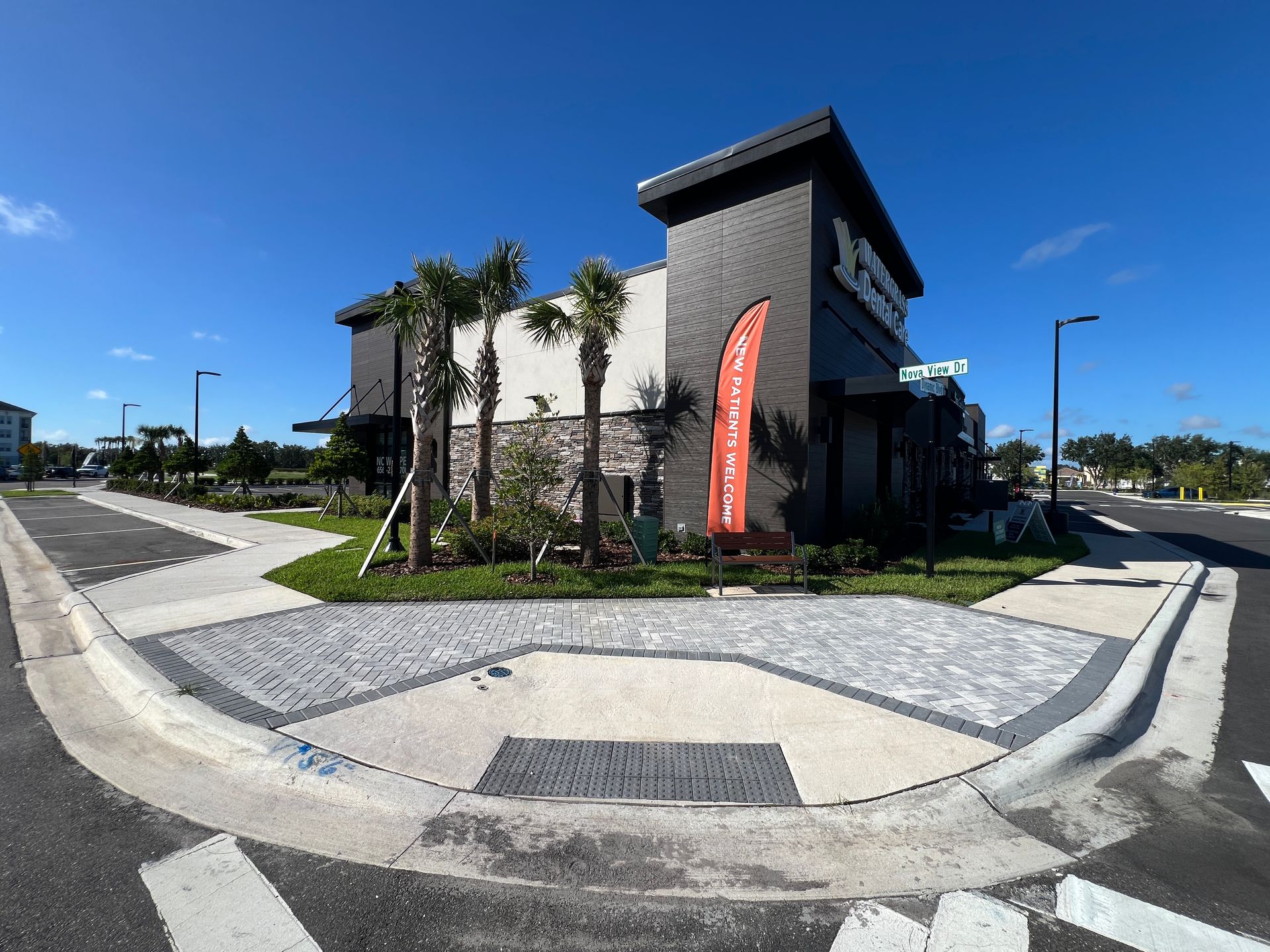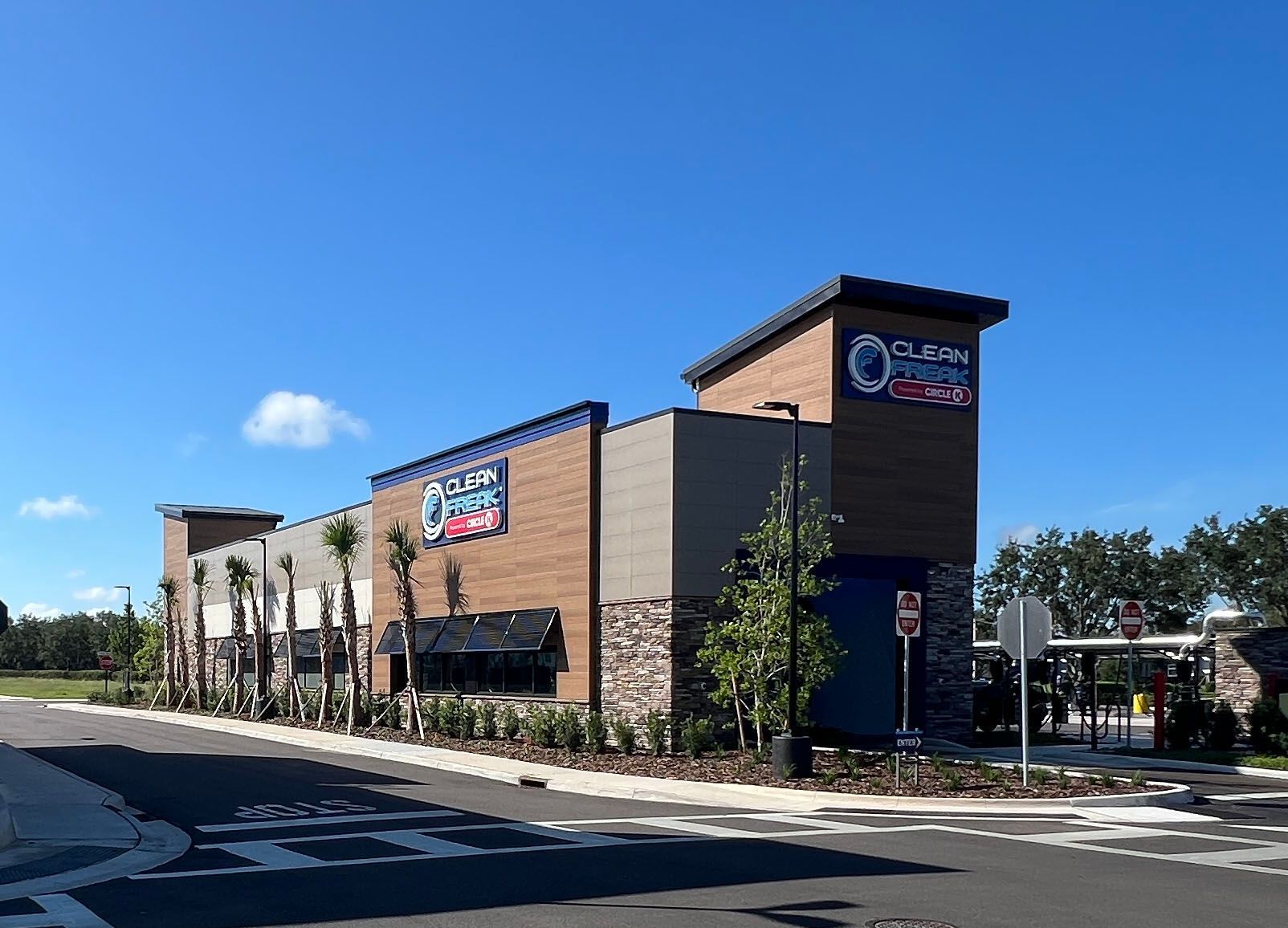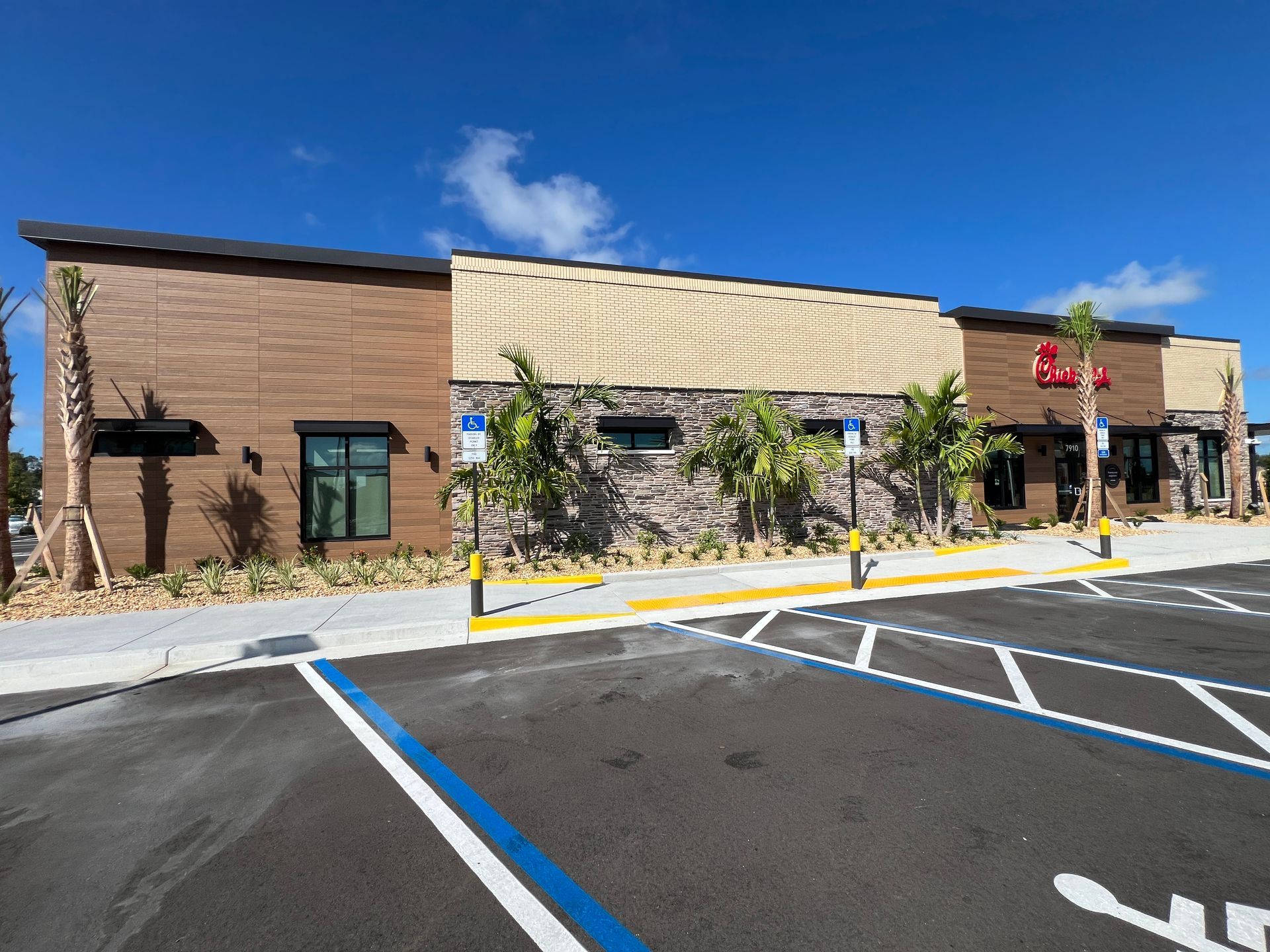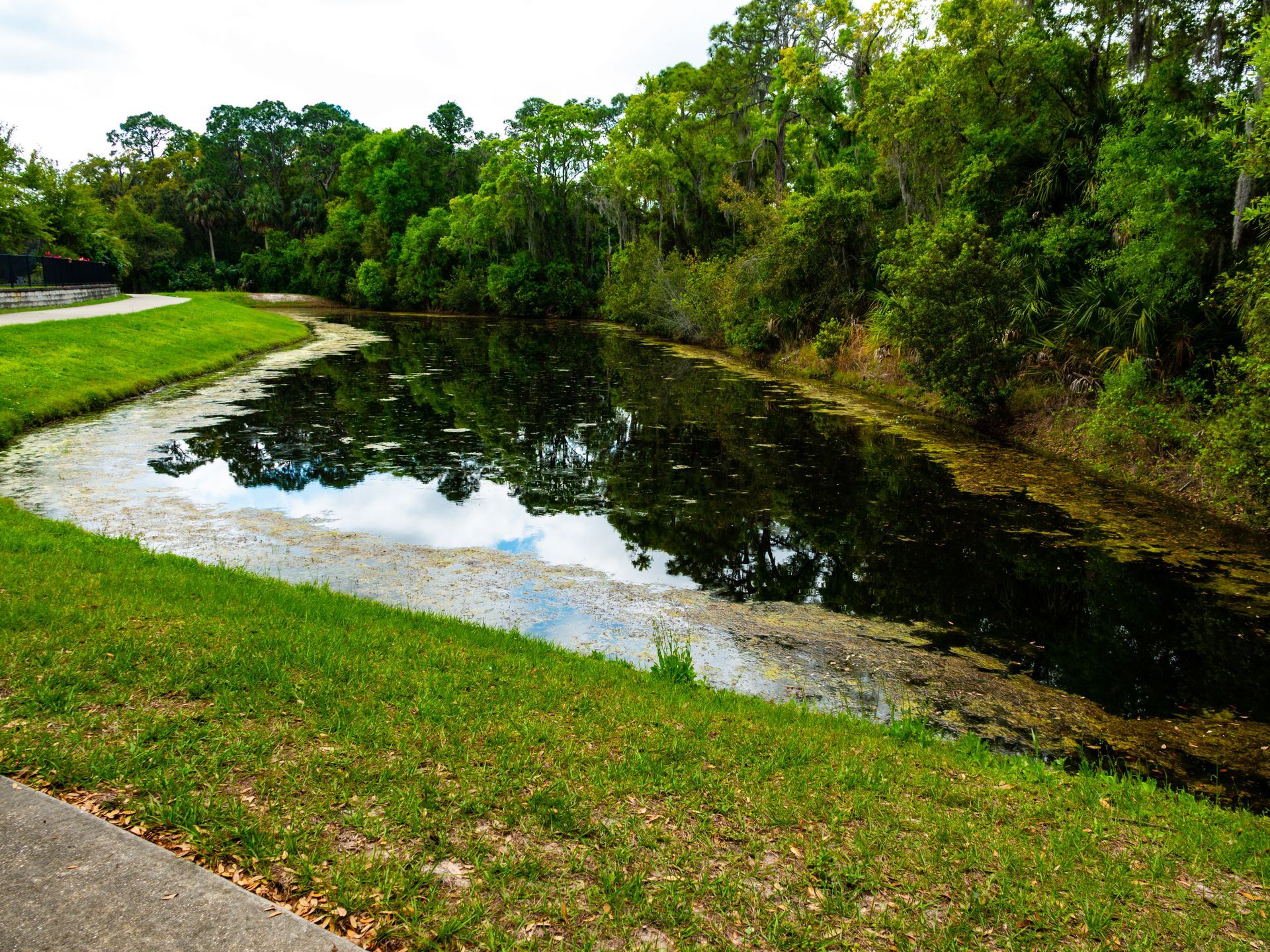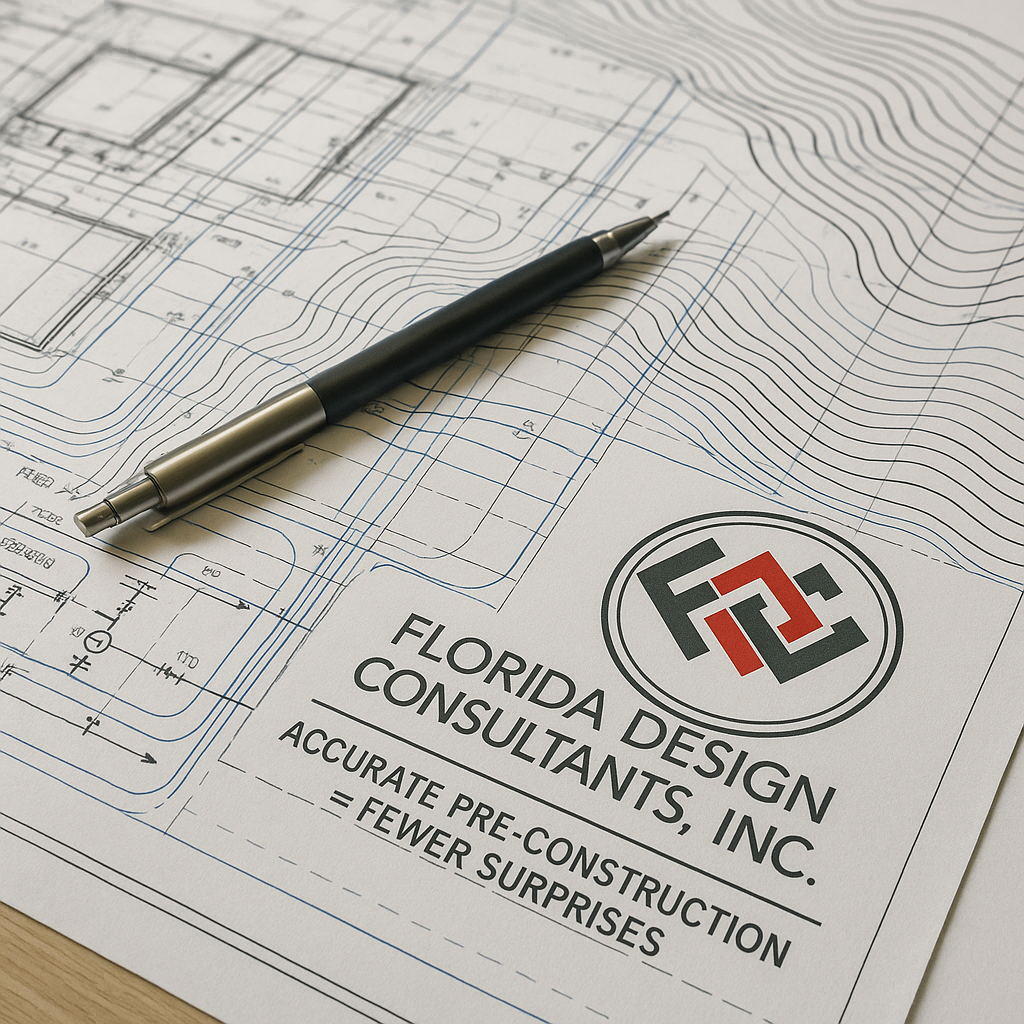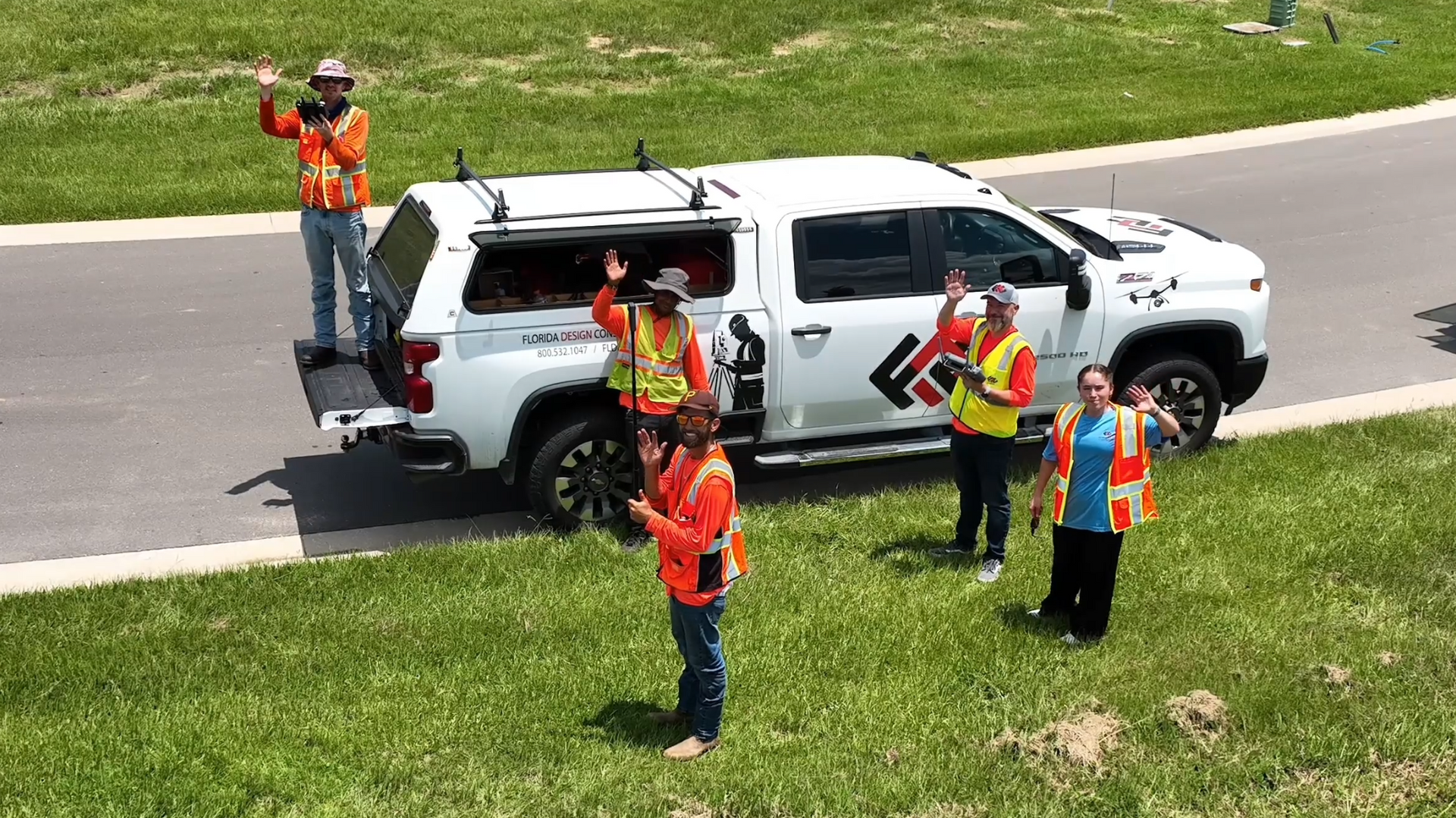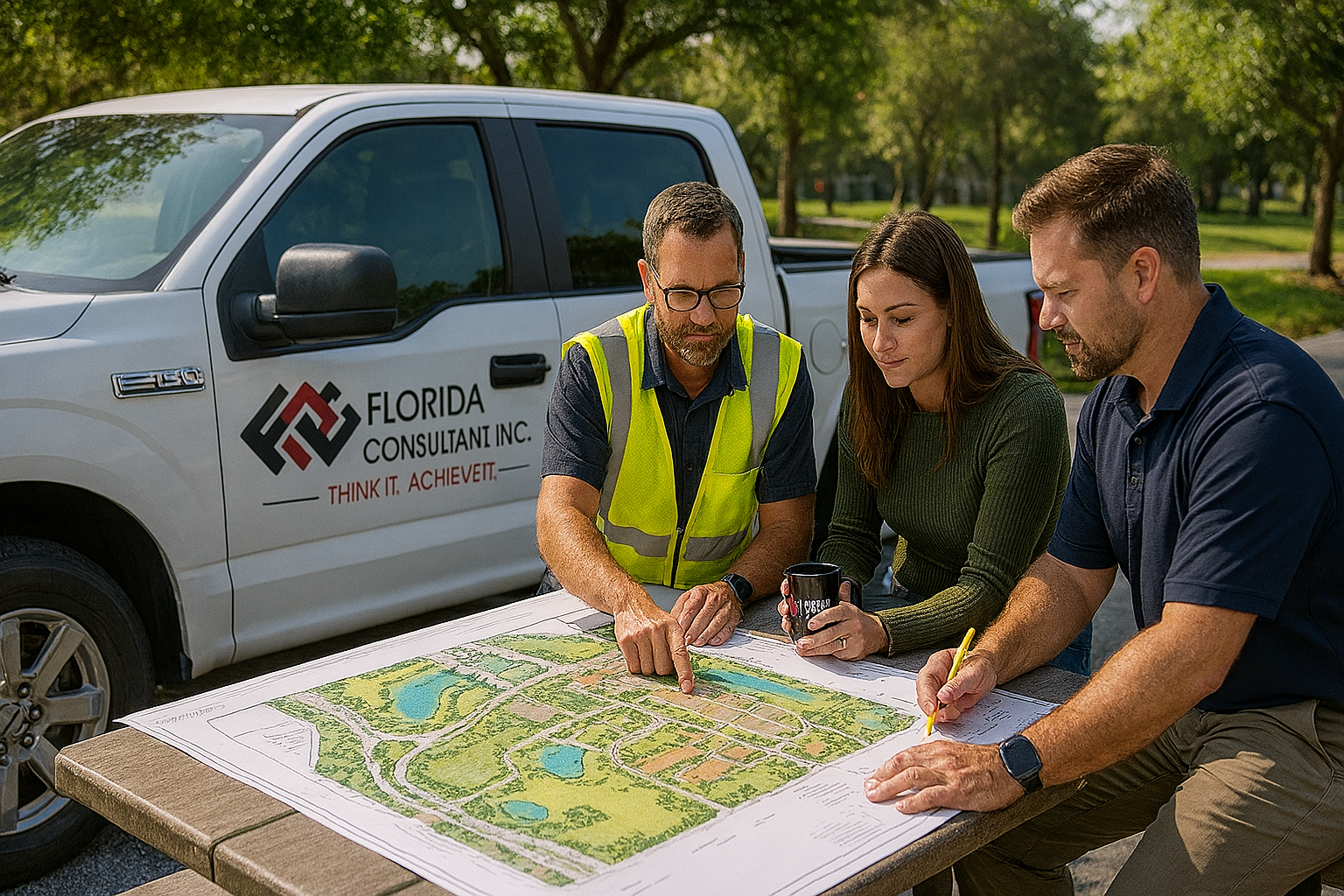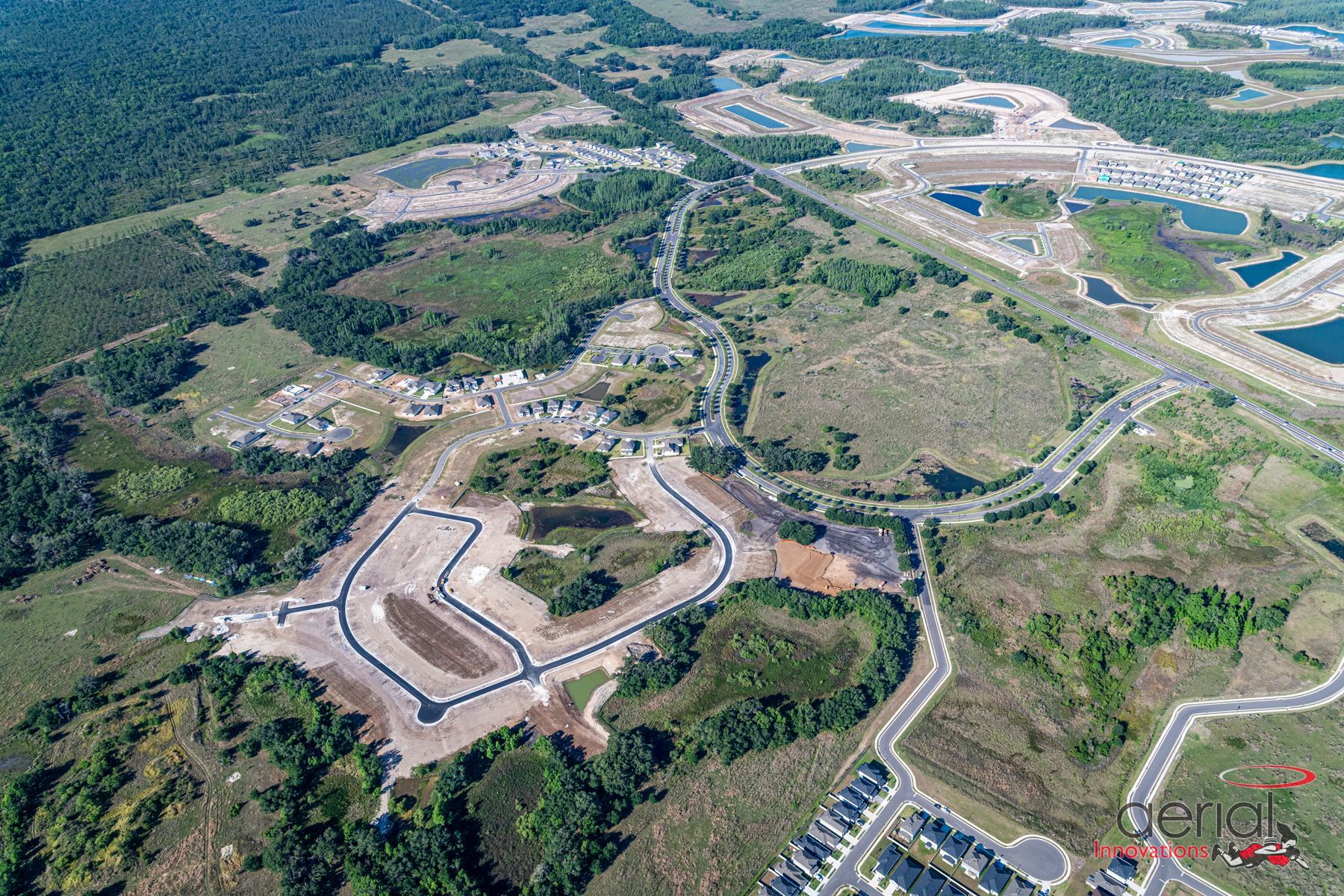Promenade Business Centre – Case Study
Promenade Business Centre: A Collaborative Vision for Growth in Pasco County
Featuring Promenade Retail, LLC
Client Overview
Promenade Retail, LLC, led by developer David Freeman, is a local commercial real estate group known for quietly shaping major projects across the Tampa Bay area. Though owner, Freeman, has often worked behind the scenes, his role has been pivotal in bringing landmark retail, restaurant, and community-focused developments to life. At the Promenade Business Centre in Pasco County, Promenade Retail is building a thriving, walkable hub featuring Starbucks, Chick-fil-A, Circle K, Chipotle, multi-tenant retail, banks, and medical offices.
The Challenge
The Promenade Business Centre sits within a Pasco County mixed-use development designation, and a portion of it is designated as MUTRM/CDA. This framework is designed to reduce roadway trips and encourage walkability, but it also introduces strict requirements for site configuration, building placement, and design quality.
Key challenges include:
- Pushing buildings close to roadways for a “downtown” feel while accommodating tenant prototypes with drive-thru needs.
- Balancing suburban code requirements with the county’s urban-style design vision.
- Coordinating multiple parcels and end-users while ensuring a cohesive development identity.
The result is an ongoing effort to align county goals, tenant needs, and the client’s long-term vision for a successful business center.
The Solution
Promenade Retail turned to Florida Design Consultants (FDC) because of their deep knowledge of the site and their reputation for creative problem solving. FDC completed the original master engineering for the Promenade Business Centre, giving them a long memory of the land, entitlements, and design guidelines.
Beyond continuity, FDC provides:
- Practical yet creative design solutions that honor both county regulations and tenant needs.
- Strong collaboration at county hearings and site visits to help decision-makers visualize the project’s benefits.
- Proactive communication with the client to translate vision sketches into feasible, attractive designs.
As Rob Rosner from FDC explains: “Design is creative problem solving. We don’t just push plans, we help shape a place people want to visit, live near, and invest in.”
The Process and Project Stages
The Promenade Business Centre has been built in stages, with each project presenting unique challenges and solutions.
The First Steps
The first projects to take shape were Circle K and Starbucks. Pasco County wanted buildings pulled close to the roadway to create a “downtown feel,” but the national tenant prototypes were built around drive-thru traffic.
Freeman, working with Florida Design Consultants (FDC), sought a middle ground, adjusting the site layouts to respect operational needs while enhancing the street presence through upgraded architecture. Starbucks received four-sided architecture with stone and wood accents, making the building attractive from every angle. Circle K’s design incorporated faux windows and detailed finishes, resulting in one of the most distinctive and successful Circle K stores in the region.
By engaging with the County and demonstrating a willingness to invest in design quality, Promenade Retail and FDC found a productive balance: tenant needs were met, while the County’s vision for a high-quality, pedestrian-friendly corridor advanced.
Raising the Bar
The next phases brought new challenges: Chick-fil-A, a Circle K Carwash, a multi-tenant retail center, and later medical and financial institutions. Chick-fil-A’s drive-through requirements risked creating traffic backups, but the team redesigned traffic circulation, closed unnecessary entrances, and added park-like features with benches, landscaping, and plaza space to improve the pedestrian experience.
The multi-tenant retail center was designed with storefronts close to the road, while landscaping and buffers softened the look of the car wash and service areas, elevating the tenant prototypes. New parcels now in progress include dental offices, a women’s care facility, and banks. Each phase continues to layer in high-quality architecture, plazas, and wide sidewalks that tie the development together.
A True Collaboration
The county’s role has been central to the Promenade’s success. Pasco leaders are pushing for higher design standards, more pedestrian connections, and better integration between parcels. At times, these requirements seem at odds with suburban codes, but the county showed flexibility by coming on-site, reviewing drone footage, and working directly with Freeman and FDC to understand the realities of each site's plan.
That willingness to collaborate, combined with Freeman’s entrepreneurial drive and FDC’s design-focused engineering, turned what could have been a tug-of-war into a partnership.
Results That Speak for Themselves
Today, the Promenade Business Centre is home to some of the region’s busiest retail locations, connected by walkable streetscapes and shaded sidewalks. What began with Starbucks and Circle K has grown into a thriving center that continues to attract national tenants and serve the community.
The results show in many ways:
- Successful approvals across multiple phases of development.
- Tenants like Circle K seeing record-setting performances.
- A consistent, cohesive look and feel across the development.
- Community-friendly features such as plazas, benches, and shaded pedestrian connections.
Most importantly, the project stands as a model of collaboration between a proactive developer, an innovative planning and engineering partner, and a county committed to raising the standard for growth.
“Working with FDC gives me confidence at every step. They understand my vision, anticipate issues before they become problems, and present solutions that keep the county, the tenants, and the project all moving forward.”
- David Freeman
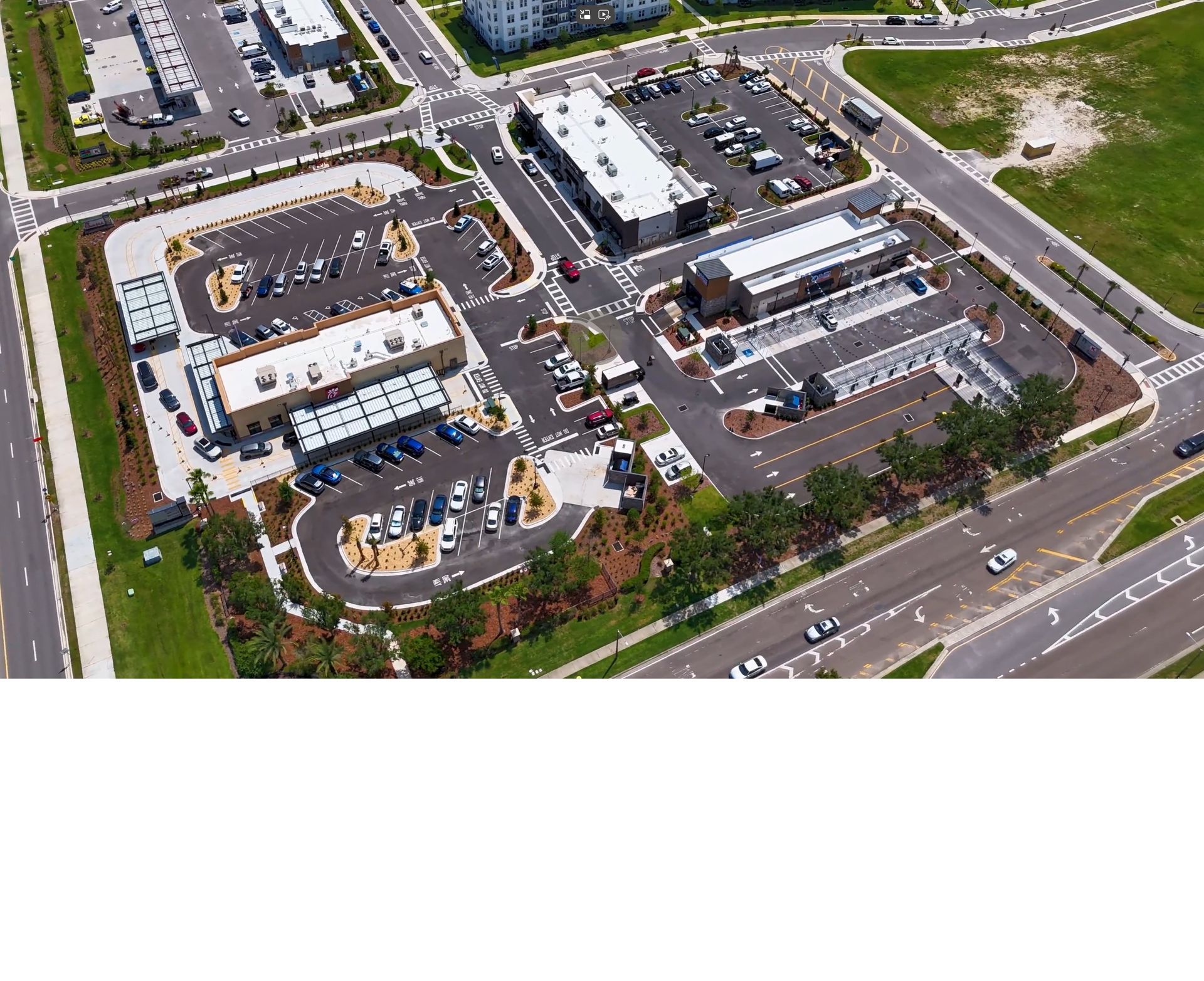
Lessons Learned
The Promenade demonstrates three key lessons for modern development:
- Partnership Wins. Success comes when developers, planners, engineers, and county officials work together toward a shared vision.
- Elevate the Standard. Even prototype-driven retail buildings can be enhanced to contribute to community character.
- Flexibility Matters. Urban design goals often clash with suburban codes, so negotiation, creativity, and persistence are essential in balancing codes, tenants, and long-term goals.
Looking Ahead
As new banks, dental offices, and healthcare facilities rise on the remaining parcels, the Promenade Business Centre continues to evolve. Each stage adds to the vision Freeman set in motion, supported by FDC’s design expertise and the county’s commitment to raising the bar for growth.
What began as a set of parcels is becoming a destination, proof that when smart developers, creative planners and engineers, and engaged public partners come together, they can shape communities for the better.
Conclusion
For Promenade Retail, the Promenade Business Centre is more than a commercial development; it is a community destination that blends convenience with quality design. By partnering with Florida Design Consultants, the company continues to overcome complex regulatory challenges while delivering a walkable, attractive business hub that benefits tenants, residents, and the county alike.
FDC is proud to support Promenade Retail in this ongoing success, and to partner with Pasco County in advancing a vision for high-quality, mixed-use growth.
